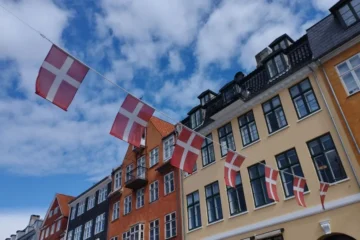Poland, nestled in the heart of Europe, offers a mix of old-world charm and modern amenities. From medieval cities to bustling business centers, Poland provides a great quality of life and a robust job market. If you’re considering making Poland your permanent home, you’ll need to understand the process of obtaining Permanent Residency (PR).
Key Takeaways
Poland – A Vibrant Country with Rich Culture and Growing Opportunities
In this guide, we’ll break down everything you need to know about getting Permanent Residency in Poland, whether you’re a student, worker, or spouse of a Polish citizen. We’ll also cover the nuances of Karta Pobytu, the differences between temporary and permanent residence, and common mistakes to avoid.
What is Permanent Residency in Poland?
Permanent residency in Poland allows you to stay in the country indefinitely, giving you the right to live, work, and enjoy most of the same benefits as Polish citizens. While it doesn’t grant citizenship, it does allow you to live and work in Poland without needing to renew your residence permit every few years.
One of the key documents associated with permanent residency in Poland is the Karta Pobytu (residence card). This is the identification card issued to foreign nationals with permanent resident status in Poland.
Types of Applicants for Permanent Residency
Poland offers various pathways for obtaining permanent residency, depending on your situation. Below are the main categories of applicants who can apply for the Poland PR:
- Workers – Individuals with a stable job in Poland and a long-term residence permit.
- Students – International students who’ve completed their education in Poland.
- Spouses – Individuals married to Polish citizens or long-term residents.
- Investors – Those investing in Polish businesses or the economy.
- Family Reunification – Relatives of those already residing in Poland.
Step-by-Step Guide to Getting Permanent Residency in Poland
Step 1: Meet the Residency Requirement
To be eligible for Permanent Residency in Poland, you need to meet the following residency conditions:
- You must have lived in Poland continuously for at least 5 years with a valid temporary residence permit.
- Your stay in Poland during these five years must have been legal and uninterrupted.
- You should not have spent more than 6 consecutive months outside of Poland within these five years, and your total absences during the five years should not exceed 10 months.
If you are a spouse of a Polish citizen, the residency period can be shorter. In some cases, if you hold an EU Blue Card, this can also expedite the process.
Also Read: How to Get Permanent Residency in the Netherlands 2025
Step 2: Prove Your Financial Stability
Just like other countries, Poland requires proof that you can support yourself financially during your stay. To qualify for PR, you need to demonstrate that you have:
- A steady income from employment, self-employment, or investments
- No financial dependence on the state (i.e., no social benefits or unemployment support)
- Proof of health insurance (either private or public)
The minimum income requirement will vary based on your situation, but you generally need to prove that you can support yourself and your family without relying on public assistance.
Step 3: Learn Basic Polish
While Poland does not have an explicit language requirement for all applicants, applicants who want to make Poland their permanent home will generally need to demonstrate basic knowledge of the Polish language. You’ll be expected to speak, read, and write at least at the A2 level.
If you’ve lived in Poland for five years, chances are you’ve picked up a good amount of the language, but you’ll still need to take a language test to prove your proficiency.
Step 4: Gather Your Documents
Before applying, make sure you have the necessary documents to support your application:
- Valid passport and visa (if applicable)
- Proof of residence (rental agreement, property ownership, etc.)
- Proof of income (e.g., pay slips, bank statements)
- Health insurance documents
- Criminal background check from Poland and your home country
- Proof of Polish language knowledge (if applicable)
- Marriage certificate (if applying as a spouse)
Step 5: Submit Your Application
Once you’ve gathered all the required documents, you can submit your Karta Pobytu (residence card) application to your local Voivodeship Office (Urząd Wojewódzki). You can also apply for permanent residency online in some cases. The process typically involves:
- Submitting your documents
- Attending an interview (if required)
- Paying the application fee (usually around 200-300 PLN)
- Waiting for a decision, which can take anywhere from 6 to 12 months
Karta Pobytu vs Temporary Residence
The Karta Pobytu is the card issued to individuals granted permanent residency. It’s important to differentiate between this and temporary residence permits.
- Temporary Residence Permit: This is typically issued for 1-3 years and is renewable. It’s ideal for those working or studying in Poland, and it’s the first step before applying for PR.
- Permanent Residency (Karta Pobytu): This is granted to those who’ve resided in Poland for five continuous years and have met other requirements. The Karta Pobytu is valid indefinitely, so you won’t need to worry about renewing your permit every few years.
Common Mistakes to Avoid When Applying for PR
The process for obtaining permanent residency in Poland can be tricky, and many applicants make mistakes along the way. Here are some common errors to avoid:
- Not meeting the continuous residence requirement – Missing more than 6 months of consecutive stay can delay or prevent your application.
- Incomplete documentation – Make sure you provide all required paperwork. Missing one document can delay your entire application.
- Not proving enough financial stability – Ensure your financial situation meets the required threshold. You’ll need to show that you can support yourself without relying on public funds.
- Not being fluent in Polish – While the language requirement is modest, many applicants underestimate how important it is to show they have a basic grasp of the language.
Benefits of Permanent Residency in Poland
Obtaining permanent residency in Poland comes with numerous benefits, including:
- Right to live and work in Poland indefinitely
- Access to Polish healthcare and social security benefits
- Ability to sponsor family members for residency
- Freedom to travel within the Schengen Area
- Path to Polish citizenship after a few years (usually after 10 years of continuous residency)
Final Thoughts: A Home in the Heart of Europe
Poland offers a high quality of life, a growing economy, and a rich cultural heritage, making it an attractive destination for long-term residents. If you’ve met the eligibility requirements and have followed the steps outlined, you’ll be well on your way to obtaining permanent residency and making Poland your home for years to come.





